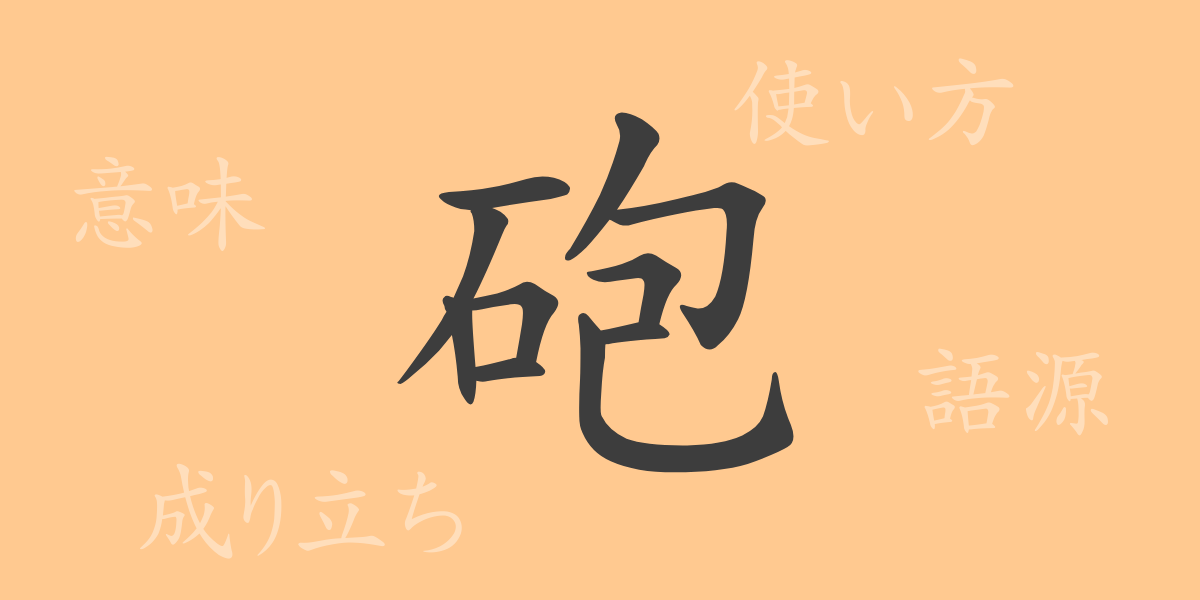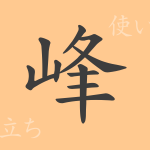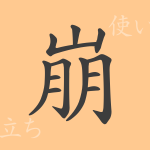The Japanese written culture is profound, and among its elements, 常用漢字 (Jouyou Kanji) are crucial characters frequently used in daily life. In this article, we focus on the 常用漢字 (Jouyou Kanji) “砲” (hou), delving into its origins and modern usage. We will explore the historical background of this character, its meaning and usage in the Japanese language, as well as related idioms and expressions.
The Origin of 砲 (hou)
The character “砲” (hou) originated in ancient China as a term related to weapons and warfare. Its structure combines the character for “fire” (火, hi) and the character for a device used to throw stones (殳, shu). This combination forms the meaning of a weapon that uses fire to launch stones or other projectiles, essentially what we understand as “cannon” or “artillery” today.
The Meaning and Usage of 砲 (hou)
The kanji “砲” (hou) refers to a cannon or similar weapon used to fire projectiles. Additionally, in a metaphorical sense, it can describe powerful statements or actions, often referred to as “砲火” (houka), meaning the “fire of artillery” or intense combat. Thus, “砲” (hou) is used not only in the literal sense of weaponry but also symbolically to represent strong influence or aggression.
Reading, Stroke Count, and Radical of 砲 (hou)
Here are the basic details about the kanji “砲” (hou):
- Reading: On’yomi (音読み) is “ホウ” (hou), no Kun’yomi (訓読み) reading.
- Stroke Count: 15 strokes.
- Radical: 石部 (いしへん, ishi-hen), meaning “stone” radical.
Idioms and Expressions Using 砲 (hou)
Here are some idioms and expressions that include “砲” (hou):
- 砲丸投げ (ほうがんなげ, hougan-nage): A type of track and field event where a heavy spherical object is thrown.
- 砲火 (ほうか, houka): The fire of artillery, or intense combat.
- 砲台 (ほうだい, houdai): A platform or facility for mounting cannons.
- 砲雷撃戦 (ほうらいげきせん, houraigekisen): Naval warfare involving artillery and torpedoes.
These idioms and expressions reflect the powerful and aggressive imagery associated with “砲” (hou).
Conclusion on 砲 (hou)
The kanji “砲” (hou), with its shape and meaning deeply rooted in ancient warfare, continues to be used in various expressions in modern Japanese. From its direct meaning as a weapon to its metaphorical usage in sports and idiomatic expressions, the influence of this single character is extensive. As a 常用漢字 (Jouyou Kanji), “砲” (hou) remains a robust part of our language, vividly illustrating its enduring significance.

























